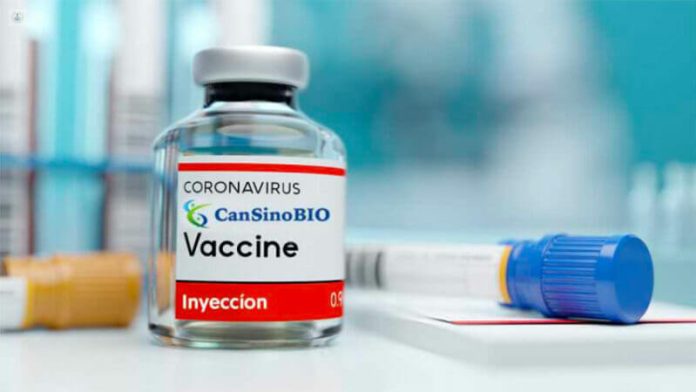President López Obrador chastised the World Health Organization (WHO) on Tuesday for its tardiness in approving some COVID-19 vaccines.
Two vaccines used in Mexico – the Sputnik V and CanSino shots – have not been approved by the WHO and people inoculated with them will not be permitted to enter the United States under new rules set to take effect November 8.
Speaking at his regular news conference, López Obrador questioned why the vaccines haven’t already been approved given that it’s known they are safe and offer protection against COVID-19.
“I understand that things move slowly in [the National] Palace but I don’t accept it anywhere else. Besides, things aren’t moving so slowly here, we’re now pushing the elephant,” the president said, comparing the federal government to the world’s largest land mammal.
“But in the World Health Organization, … with all respect, it’s inefficiency, we’ve been saying it for a week but there’s no response,” he said.
López Obrador said he asked Health Minister Jorge Alcocer and Deputy Health Minister Hugo López-Gatell to prepare a letter asking the WHO to expedite its approval process, adding that he intended to sign and send it on Tuesday.
He conceded that the WHO might not approve the Sputnik V and CanSino shots but described that outcome as “very unlikely because we’re talking about health, not political or ideological matters.”
“… The bottleneck’s in the World Health Organization. We hope they resolve [the issue] soon, they can do it in 72 hours. They’ve been [considering approval] for a very long time,” López Obrador said before claiming that the delay was caused by “indolence.”
If the WHO hasn’t approved the Sputnik and CanSino shots by the time the United States vaccination requirement takes effect early next month, there is some possibility that Mexicans inoculated with those vaccines will still be able to enter the U.S.
Roberto Velasco, head of the Foreign Affairs Ministry’s North America department, said in an interview Tuesday that Mexican authorities were speaking to their U.S. counterparts about the possibility of people vaccinated with those shots being able to cross the border.
“We’re exchanging information to see if there is a bilateral solution,” he told Milenio Television.
With reports from El Universal and Milenio
